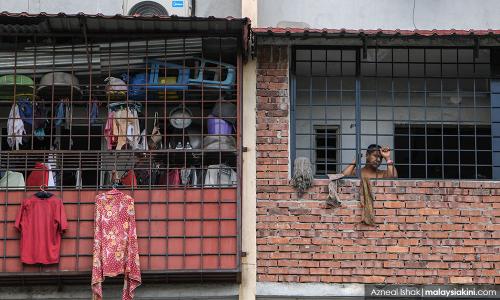LETTER | Abetting the coronavirus
LETTER | It has been more than a year ago since the Covid-19 pandemic hit Malaysian shores and over this span of time, we have had multiple periods of lockdowns and semi-lockdowns.
Malaysia can pride herself as being one of the very few countries resorting to emergency rule in the name of managing the pandemic. Has the emergency made any difference to the infection rate so far? Let’s take a look at the various efforts over the past year and compare how we have fared against neighbouring countries.
It is an established fact that the most fearful feature of any viral outbreak is the mutative ability of the virus. And to curb the spread of any viral outbreak is to prevent people from congregating in crowded places. Thus the key to this is social distancing.
At the same time, immediate steps to initiate mass vaccination will enhance people’s immunity against infection, or at least reduce the severity of infliction. The first lockdown was quite successful but the vaccination effort and programme was a dismal failure.
The delayed acquisition and initiation of the programme allowed time for continued infection and mutation. Striking back fast at the virus was a crucial weapon but we wasted time. The reason given was supply, which is totally unacceptable. If we had acted fast enough, then our queue would be ahead of others.
The whole vaccination programme was also badly planned. Why wasn’t the private health care fraternity included until just recently? If they were a part of the initial vaccination programme, we could be almost completing the whole exercise by now.
Why should the government monopolise this vaccination programme? Why gamble with people’s lives and livelihood? Instead of coming up with a sound vaccination plan, we hear announcements after announcements about how many shots have been administered off and on, just like empty vessels.
Then came the Hari Raya celebrations. The offer to hold daily bazaars was another perfect breeding ground for the spread of the virus. This was compounded by pre-Raya shopping sprees. Footages of these were very clear signs of impending infection spikes. And true enough, the figures did shoot up to 8,000-9,000 and it was admitted that these were the result of Raya celebrations.
All in all, we have had restricted and full lockdowns for about half a year in total, with the current one being the most misery-bearing. And this most severe period is supposed to have been effectively curbed as deemed by the purpose of having the nation under emergency. What a joke!
The last big issue is the classification of “essential services” by the government. To the barber, the photocopy shop operator, the tailor and many more similar small-time businesspersons, what they do for a living is essential service to them as they depend on it to have food on the table and to pay their mortgages.
Of course, to the ministers, these may not be essential services to them. So what is the basis of this “essential services” classification?
On the other hand, probably 70 percent of the population does not need to interact directly with government departments. Hence, to these 70 percent, the ministers and government departments under them are considered as “non-essential services”.
Therefore, the classification of essential or non-essential services depends on the perspective being applied. Be more sympathetic and considerate. What everyone does for a living is an essential service to them.
In conclusion, the general verdict is - “You are guilty for abetting the coronavirus”. Hundreds of thousands have lost their jobs, their livelihood and many have even died due to a disappointingly incompetent machinery.
The views expressed here are those of the author/contributor and do not necessarily represent the views of Malaysiakini.
RM12.50 / month
- Unlimited access to award-winning journalism
- Comment and share your opinions on all our articles
- Gift interesting stories to your friends
- Tax deductable
